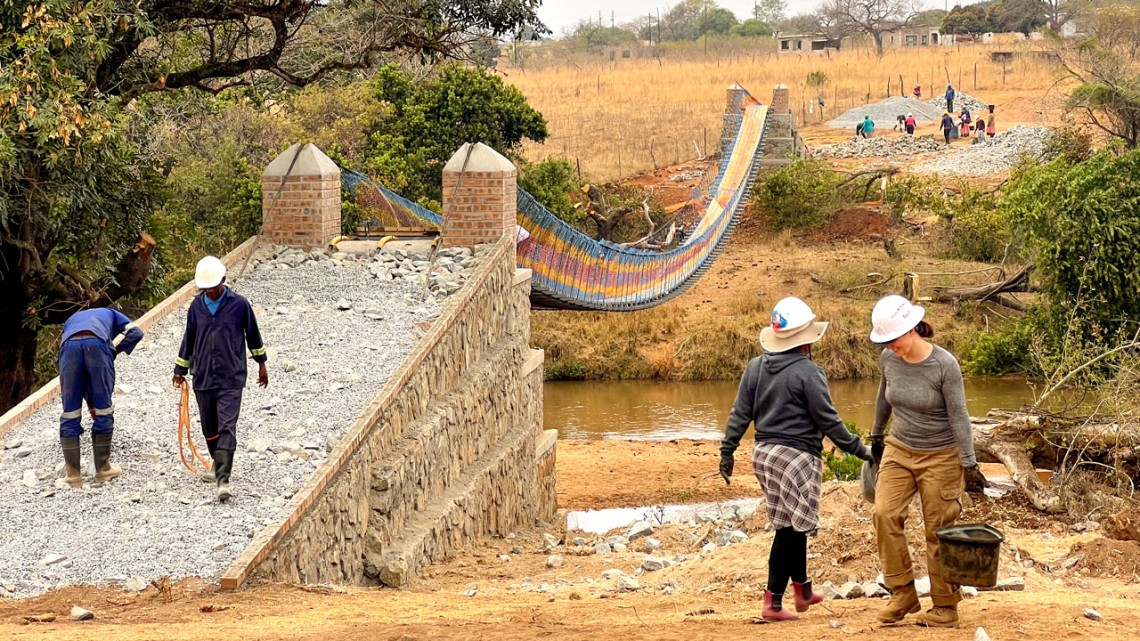
At Matfuntini Primary School in rural Eswatini, the stream-fed tap water sometimes ran black or brown. Teachers at the school suspected the water often made their students sick, and when the stream was dry, they had no water at all.
This summer, six students from the Cornell Engineering project team Engineers in Action (EIA), alongside a team of masons from Eswatini and the local community, installed a solar-powered groundwater system and disinfection system to ensure clean water for the school. They also provided trainings and a manual so the community can continue maintenance on the system themselves.
“It was really cool to see the impact we’re having, not just in building the project but also transferring skills,” said Sara Buchta ‘25, an environmental engineering major and the project manager for Cornell EIA.
Since 2017, Cornell EIA has worked with communities to build footbridges that connect thousands of people in Eswatini to schools, medical facilities and markets. Now they’re expanding their impact with the water sanitation project, piloted for the first time last summer and supported by the Einhorn Center for Community Engagement, as well as a more complicated bridge, to be constructed in 2025, that will reduce manual labor and expand the map of where bridges can be built.


